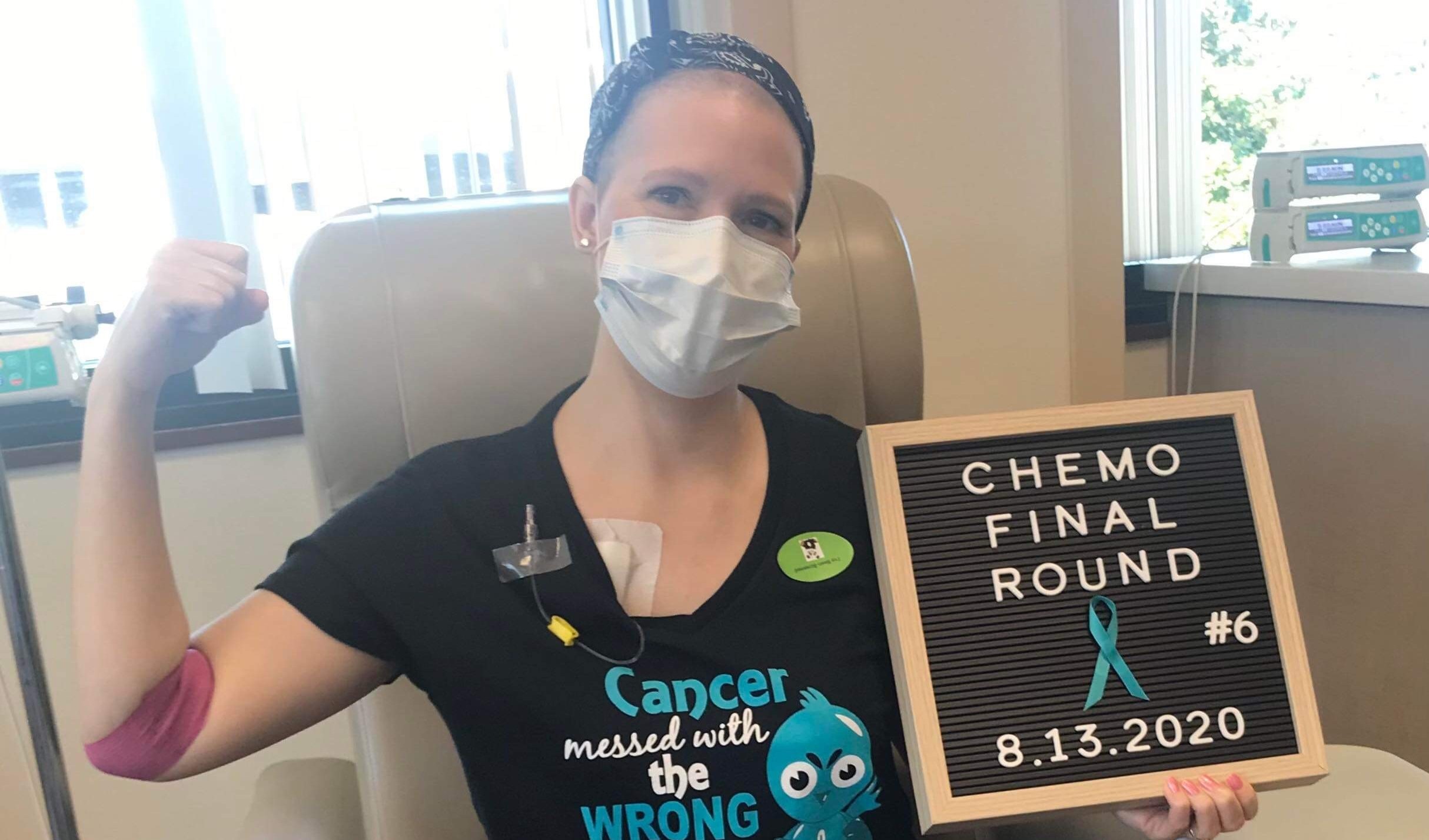Jackie Templeton and her husband, Brian, will celebrate 50 years of marriage this month. It’s a milestone Jackie wasn’t sure she’d live to see.
After a difficult two-and-a-half-year struggle against metastatic melanoma, her health improved significantly after being introduced to an immunotherapy drug called Keytruda, as a patient at Willamette Valley Cancer Institute.
“I’ve never been in a tanning booth, but my mother always thought if you looked tan, you were healthier,” Jackie said. “So she always had me out in the sun when I was growing up.”
The 72-year-old admits, as she got older, she wasn’t diligent about using sunscreen. While she never consciously sunbathed, she gardened and spent a lot of time outdoors. Still, she was surprised when doctors diagnosed her with melanoma in August 2012 after she found a lump on her upper thigh. There were no visible changes to her skin.
“When you hear melanoma, you think of it affecting your skin in some way. At least, that’s what I thought. But it wasn’t like that at all,” Jackie said.
Jackie had surgery to remove the cancer and surrounding lymph nodes. Nine months later, the cancer was back and she underwent another operation. By September 2013, the cancer had spread to her abdomen, and then to other areas of her body. Each time the cancer returned, Jackie was prescribed a new treatment, but it only worked temporarily.
“At first, I thought, ‘Okay these treatments help, but they only help me live a few months longer,'” Jackie said. “Is it really worth the expense and the side effects? But looking back now at the entire picture, the fact that I did use these other drugs allowed me to reach the point where Keytruda became an available option and it all just fell into place.”
Jackie’s body responded immediately to Keytruda, which has significantly shrunk her tumors. For the first time in a long time, Jackie says she’s feeling better and her energy has returned.
“Keytruda is a drug in a new class of immunotherapy that is revolutionizing the way we treat not only metastatic melanoma, but other solid tumors, including metastatic kidney cancer and lung cancer,” said WVCI oncologist Joseph Fiorillo.
“What’s remarkable about this class of drugs and these therapies is that I can administer them in an outpatient setting in the clinic and they’re very well tolerated by patients. We don’t see the toxicity with these drugs that we see with the chemotherapies normally associated with cancer treatment, which can have serious side effects,” Dr. Fiorillo said.
About Keytruda
Keytruda was FDA-approved in September 2014 for treating patients with advanced melanoma who are no longer responding to other drugs. It blocks a cellular pathway known as PD-1, which restricts the body’s immune system from attacking melanoma cells. Known as checkpoint inhibitors, this class of immunotherapy boosts the immune system’s ability to recognize cancer as foreign and fight it.
Keytruda is administered intravenously every 21 days. The most common side effects are fatigue, cough, nausea, itchy skin, rash, decreased appetite, constipation, joint pain and diarrhea.
“Another approved immunotherapy drug called Opdivo (nivolumab) is also being used to treat advanced melanoma, as well as a form of lung cancer,” said Dr. Fiorillo. “There are a number of other immunotherapies being developed right now that are proving to be very effective at treating difficult cancers.”
Renewed Hope for This Cancer Patient
“I’m a realist, and I accept that it could all change at some point,” Jackie said. “But right now, it’s working, and that’s good news. We’re hopeful.”
At her side for all of her appointments and treatments, Jackie’s husband, Brian, has been her support system during the ups and downs of her cancer.
“I’m an optimist. I like to assume we’re going to fix this,” said Brian. “In the two-and-a-half years we’ve been dealing with this, we’ve gone from the assumption that this isn’t curable to the possibility that with these new drugs, it can be managed.”



